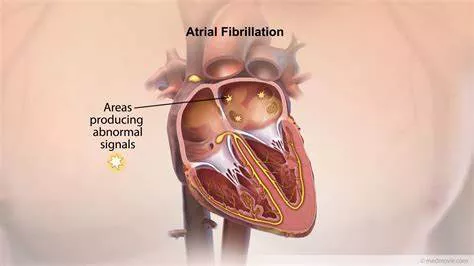Inflammation around the heart, known medically as pericarditis, can be a serious condition with significant health implications. This inflammation occurs in the pericardium, a thin, sac-like membrane surrounding the heart. Pericarditis can cause sharp chest pain, a feeling of breathlessness, and other symptoms that significantly affect a person’s quality of life. Understanding the causes, symptoms, and treatment options is crucial for managing this condition effectively.
Causes of Heart Inflammation
The causes of pericarditis can vary widely and include:
Infections: Viral infections are the most common cause, but bacterial, fungal, and other types of infections can also lead to inflammation.
Autoimmune Disorders: Conditions like lupus, rheumatoid arthritis, and scleroderma can cause the body’s immune system to attack the pericardium.
Heart Attack: Inflammation can occur after a heart attack due to the damage to heart tissues.
Trauma: Injury to the chest, such as from an accident or surgery, can lead to pericarditis.
Cancer and Cancer Treatments: Certain cancers and their treatments can cause pericarditis.
Medications: Some medications, particularly those used to treat heart conditions, can have side effects that include pericarditis.
SEE ALSO: How to Test for Heart Inflammation
Diagnosing Heart Inflammation
Diagnosing pericarditis involves several steps, including:
Medical History and Physical Examination: A detailed medical history and physical exam can provide initial clues.
Electrocardiogram (ECG): This test records the electrical activity of the heart and can reveal characteristic changes associated with pericarditis.
Echocardiogram: An ultrasound of the heart that can show the pericardium and detect fluid accumulation.
Chest X-ray: Can help visualize the heart and surrounding areas.
Blood Tests: Used to detect markers of inflammation and infection.
MRI and CT Scans: Advanced imaging techniques that provide detailed pictures of the heart and pericardium.
How to Reduce Inflammation Around The Heart?
The treatment for pericarditis aims to reduce inflammation and address the underlying cause. Common treatments include:
Anti-inflammatory Medications: Nonsteroidal anti-inflammatory drugs (NSAIDs) like ibuprofen are often used to reduce inflammation and relieve pain.
Colchicine: This medication can be used in conjunction with NSAIDs to reduce symptoms and prevent recurrence.
Corticosteroids: In severe cases or when other treatments are ineffective, corticosteroids like prednisone may be prescribed.
Antibiotics or Antifungals: If an infection is the cause, appropriate antibiotics or antifungal medications will be necessary.
Pericardiocentesis: In cases where fluid accumulation around the heart (pericardial effusion) occurs, a procedure to drain the excess fluid may be necessary.
Lifestyle Changes to Reduce Heart Inflammation
In addition to medical treatments, several lifestyle changes can help reduce inflammation around the heart and improve overall heart health:
Healthy Diet: A heart-healthy diet is rich in fruits, vegetables, whole grains, lean proteins, and healthy fats. Foods high in omega-3 fatty acids, like salmon and flaxseeds, have anti-inflammatory properties.
Regular Exercise: Moderate physical activity, such as walking, swimming, or cycling, can help reduce inflammation and improve cardiovascular health.
Adequate Sleep: Ensuring sufficient and quality sleep is crucial for reducing inflammation and maintaining overall health.
Stress Management: Chronic stress can contribute to inflammation. Techniques such as yoga, meditation, and deep breathing exercises can help manage stress levels.
Avoid Smoking and Limit Alcohol: Smoking and excessive alcohol consumption can increase inflammation and negatively impact heart health.
Natural Remedies And Supplements
Several natural remedies and supplements may help reduce inflammation and support heart health:
Turmeric: Contains curcumin, which has potent anti-inflammatory properties.
Omega-3 Fatty Acids: Found in fish oil supplements, these can help reduce inflammation.
Ginger: Known for its anti-inflammatory and antioxidant effects.
Garlic: Contains compounds that can help reduce inflammation and support heart health.
Green Tea: Rich in antioxidants, it can help reduce inflammation and improve overall health.
Preventing Recurrence
To prevent the recurrence of pericarditis, it is important to:
Follow your treatment plan and take medications as prescribed.
Maintain regular follow-up appointments with your healthcare provider.
Make lasting lifestyle changes that promote heart health and reduce inflammation.
Be aware of the symptoms and seek prompt medical attention if they reoccur.
When to Seek Medical Help
If you experience symptoms of pericarditis, it is important to seek medical help promptly. Additionally, if you are being treated for pericarditis and notice any of the following, contact your healthcare provider immediately:
- Worsening chest pain or discomfort.
- Shortness of breath or difficulty breathing.
- Fever that persists or worsens.
- Swelling in the legs or abdomen.
Conclusion
Inflammation around the heart, or pericarditis, is a serious condition that requires timely diagnosis and treatment. By understanding the causes, recognizing the symptoms, and following a comprehensive treatment plan that includes medical intervention and lifestyle changes, you can effectively manage and reduce inflammation around the heart. Maintaining a healthy lifestyle and being vigilant about symptoms can help prevent recurrence and ensure better heart health in the long term.


